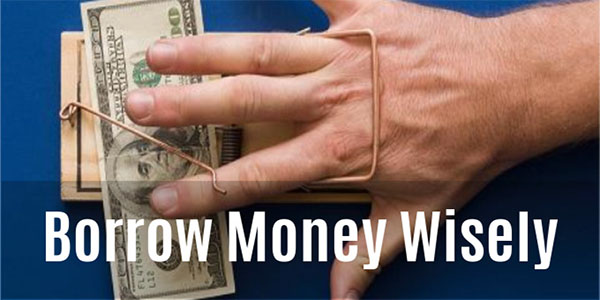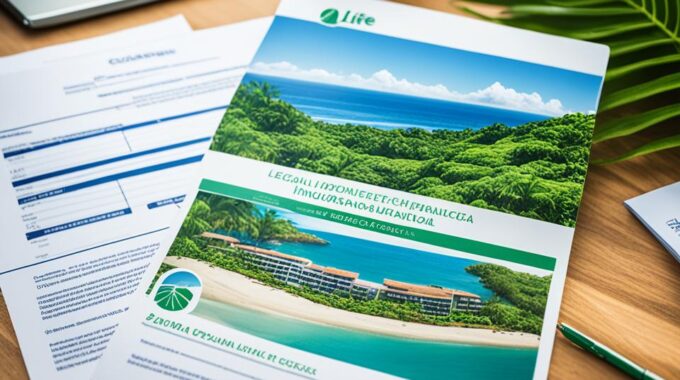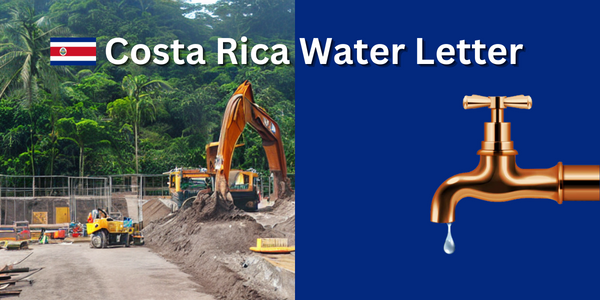Will and life insurance in Costa Rica for expats with CRIE.cr - expert guidance on estate planning, beneficiary designations, and securing your legacy abroad.
Is it safe to borrow money in Costa Rica?
Is it safe to borrow money in Costa Rica? Safety & Options
Costa Rica has a wide variety of banks. However, doing traditional loans with banks offer high-interest rates and appalling approval times – it can take many months with a conventional bank loan just to see if you get approved.
Borrowing money in any country can be difficult and frustrating, especially if you don’t know the rules, laws, and financial institutions. If you want to borrow money, you might wonder, Is it safe to borrow money in Costa Rica? This article will answer this question and provide a comprehensive guide to help you make an informed decision.

Requirements for Foreigners
Costa Rica is a popular destination for foreigners looking to purchase property, but the financing process can be complicated. Specific requirements must be met to obtain financing from a bank in Costa Rica as a foreigner. These include proof of a steady source of income, a good credit history, a down payment, and more. Additionally, you will need to be a permanent resident already and have a local co-signer to allow you to be approved for many if not most, conventional loans.
Requirements for a private loan or hard money are typically the opposite, being very easy to qualify for, with the only fundamental requisite having equity as collateral. Many private lenders working with Gap Equity Loans do not need their clients to provide a co-signer, proof of income, or show their credit history.

Types of Loans Available
1. Conventional Loans
These loans are provided by traditional financial institutions such as banks and credit unions. They generally have interest rates much higher than you’d expect to see in the USA and longer repayment terms than other loan options, but they can feel impossible to qualify for. Possibly the worst part of the process is you could be strung along for over a year or more of waiting just to be denied the loan based on your credentials.
2. Private Loans
Individuals or non-traditional financial institutions provide these loans and can be more flexible with their terms than conventional loans. People usually assume they have higher interest rates and shorter repayment terms, but in Costa Rica, they can be similar to what the banks would give you.
3. Hard Money Loans
These are secured by the property being purchased through a lean. Investors often use them, generally faster and easier to obtain than other loan options, because the collateral makes the lender feel secure. Also, interest rates are comparable to the banks, especially when the LTV (loan to value) is low. For example, if you are trying to borrow $100,000 USD on a $1,000,000 USD property, it’s possible to see lower interest rates since the LTV is 10%.

There are many good reasons to get a private home equity loan, such as:
Access to Funds: With a home equity loan, you can use the equity you’ve built up in your home to pay for big expenses like office and home improvements, investment opportunities, or medical bills.
Fixed Payments: Interest rates and payments for home equity loans are fixed, which makes it easier to plan for them.
Tax benefits: The interest you pay on a home equity loan may be tax-deductible, which makes it a good choice for people who want to pay less in taxes.
Comparable fees: Most home equity loans have comparable fees to other loans, saving you money in the long run.

How to Choose the Right Loan
Choosing the right loan for your needs as a foreigner in Costa Rica can be a complex process. Here are a few things to consider when making your decision:
- Purpose of the Loan: Are you purchasing a primary residence or an investment property? Your loan needs will be different depending on the purpose of the property.
- Repayment Terms: What are the repayment terms for the loan? Are you comfortable with the length of time you will have to repay the loan and the interest rate being offered?
- Down Payment: How much of a down payment can you make? The more you can put down, the more favorable the loan terms will be.
- Credit Score: What is your Costa Rican credit score, and does it meet the requirements of the loan options available to you?
- Co-Signer: Do you have a local co-signer who can support your loan application and is willing to trust you with their credit score?

Understanding the Real Estate Market in Costa Rica
Costa Rica has a robust and stable economy driven by tourism, agriculture, and a growing tech industry. This has resulted in a strong real estate market that continues to grow and evolve.
In recent years, there has been a surge in demand for beach properties in Costa Rica, particularly from foreign investors. This has led to an increase in the number of available private financing options for those looking to invest in real estate in the country. A private mortgage loan could help you finance your property in Costa Rica, whether you’re a seasoned investor or a first-timer.

What to avoid
We want you to choose the right path, but spotting the wrong path is also a vital skill to possess, leaving more room for you to keep borrowing money safely here in Costa Rica. So here are 4 things to be aware of when borrowing money in Costa Rica:
1. Predatory lending
It’s when granting a loan purposefully puts the borrower in a precarious financial position, leaving them in a position to be taken advantage of by the lender. This often happens in “unsecured” or “under the table” Loans.
2. Usury
When the lender charges very high-interest rates, this is called usury. Usury is ubiquitous for secured and unsecured loans, yet it is most commonly found when dealing with loan sharks. Some credit card companies in a few countries have been accused of usury – for example, some banks maintain an interest rate of up to 70% on their credit cards! Remember this when doing a loan to ensure you are not being taken advantage of!
3. Hidden fees
What are hidden fees? It’s when legal and processing fees become outrageous due to overzealous lawyers and lenders. Some shady companies and lenders add hidden costs to the contract.
4. Over-securitization
What is the over-securitization of a loan? It’s when overzealous lawyers and lenders want to put a lien on more properties than needed for the amount.
Over-securitization of a loan often happens, contrary to the borrower’s benefit. For example, a 10% LTV (Loan-to-Value) loan, such as a $50,000 USD loan on a $500,000 home, should be enough to put a mortgage lien on the home and generally should not require tying up other assets.

Conclusion
Is it safe to borrow money in Costa Rica? Absolutely. Purchasing property in Costa Rica as a foreigner is also possible with the right financing. However, be cautious and stay vigilant for red flags. Use the above tips as a rail guard! Dealing with reputable companies like Gap Equity Loans in Costa Rica is essential for a fair loan – look for the right company with the proper credentials. Companies like Gap Equity Loans have your best interest in mind for both the borrowers and the lenders alike! By following these guidelines, you can ensure a safe and stress-free borrowing experience in Costa Rica. With the right loan, you can start living the dream of owning property in this beautiful country.
*Loan Request Form
What are hard money loans?
Hard money loans are short-term loans typically secured by real estate assets. Private lenders often provide these loans, generally easier to obtain than traditional bank loans.
What are equity loans?
Equity loans allow homeowners to borrow money against the equity they have built in their property. The loan amount is determined by the property’s value and the homeowner’s equity.
What is private lending?
Private lending is a form in which individuals or private companies provide loans to borrowers. Private lenders can provide more flexible terms and faster processing times than traditional banks.
What is asset-based lending?
Asset-based lending is a type of lending in which the loan is secured by the borrower’s assets, such as real estate, inventory, or equipment. Businesses often use this type of lending to access financing based on the value of their assets.
What is real estate financing?
Real estate financing is a type of financing used to purchase or invest in real estate. This can include traditional bank loans and alternative financing options like hard money loans or private lending.
What is short-term financing?
Short-term financing refers to loans typically repaid within a year or less. This type of financing can be useful for businesses or individuals who need quick access to capital.
What is non-traditional lending?
Non-traditional lending refers to lending options that are outside of the traditional banking system. This can include private lenders, crowdfunding platforms, or peer-to-peer lending.
What are Costa Rica property loans?
Costa Rica property loans are specifically designed for individuals or businesses looking to purchase property in Costa Rica. Both traditional banks and alternative lenders can provide these loans.
What are bridge loans?
Bridge loans are short-term loans typically used to bridge the gap between purchasing a new property and selling an existing property. These loans are often secured by the property being purchased.
What are collateral-backed loans?
Collateral-backed loans are loans secured by collateral, such as real estate, inventory, or equipment. The value of the collateral is used to determine the loan amount, and the collateral is forfeited if the borrower cannot repay the loan.
Is it safe to borrow money in Costa Rica?
Yes, it is generally safe to borrow money in Costa Rica. The country has a stable political and economic environment and a well-regulated banking system. However, exercising caution when selecting a lender and researching before taking out a loan is important.
Additionally, it is important to carefully review the terms and conditions of any loan before signing. Ensure you understand the interest rates, fees, and repayment terms, and ask questions if anything is unclear.
By taking these precautions and working with a reputable lender, you can safely borrow money in Costa Rica.
Contact us for more information, or fill out a loan request now!
Need Residency status in Costa Rica? – Click HERE.
Looking for Real Estate? – Click HERE.
Want to invest? – Click HERE.
Article by Glenn Tellier (Founder of CRIE and Grupo Gap)






This Post Has 0 Comments